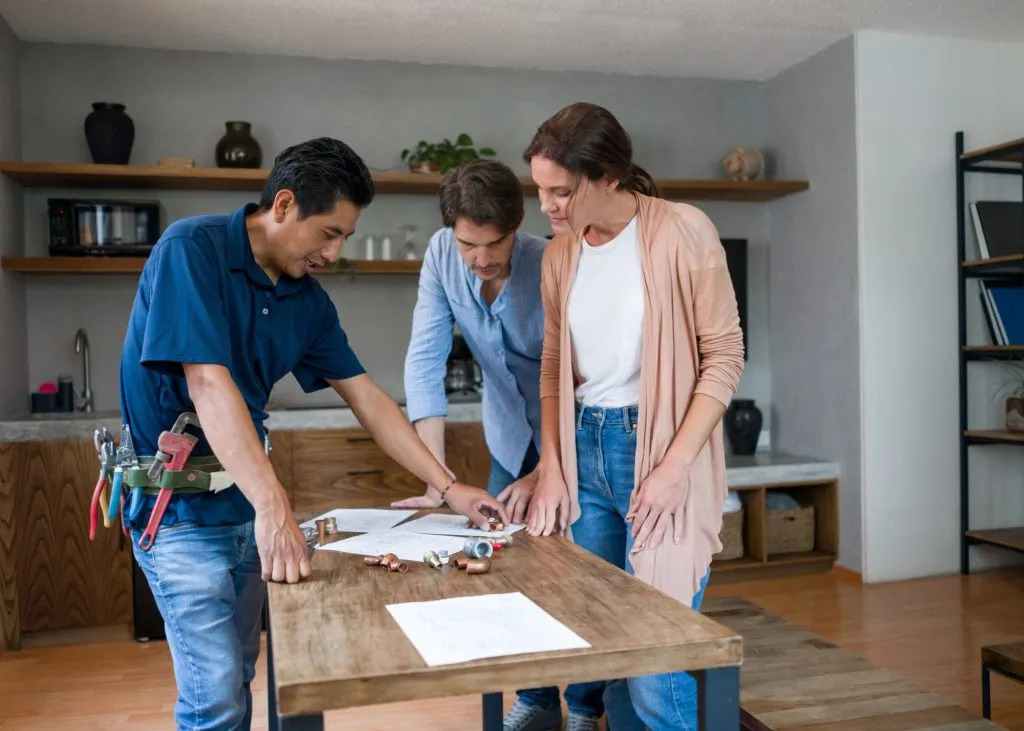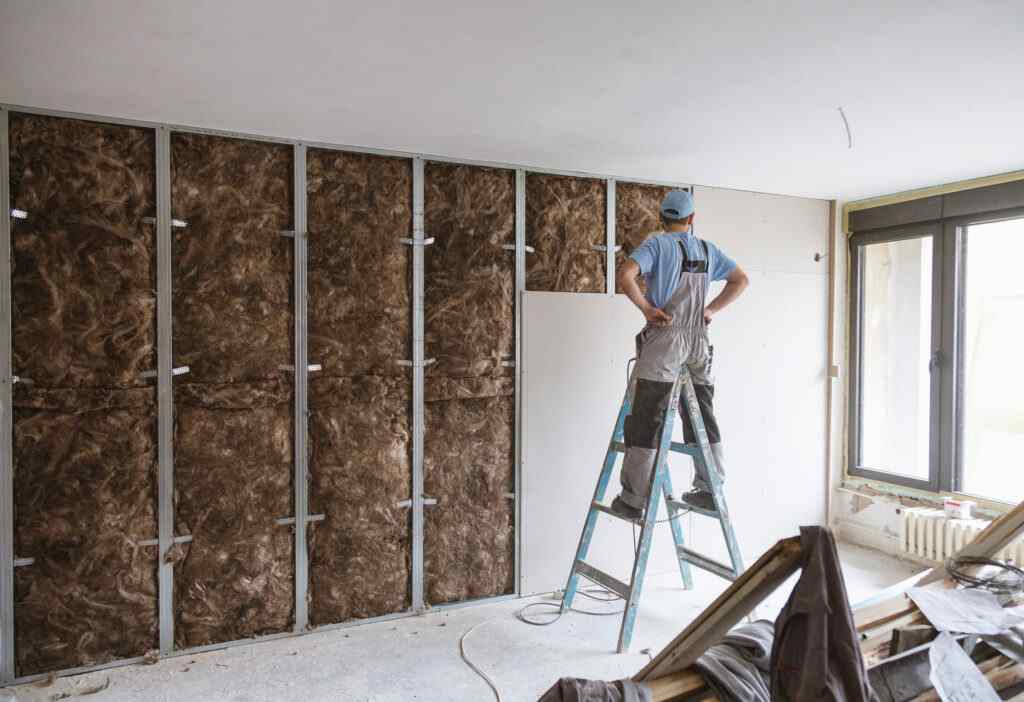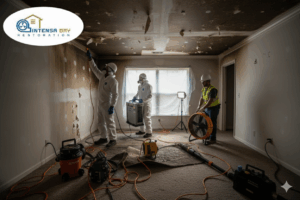Blogs
How to Avoid Costly Mistakes During Your Reconstruction in Plano

Reconstruction projects, whether residential or commercial, can be exciting but also fraught with potential missteps. In Plano, with its unique climate and architectural styles, ensuring that your reconstruction runs smoothly requires careful planning and attention to detail. From selecting the right materials to finding trustworthy contractors, avoiding common mistakes will save you time, money, and frustration. In this guide, Intensa Dry will walk you through practical steps to avoid costly errors during your reconstruction project, offering insights specific to Plano’s local construction needs. Following these tips can help you stay within budget, achieve your desired outcome, and enjoy a successful reconstruction that enhances your property’s value and functionality.
1. Set a Realistic Budget and Stick to It
Setting a realistic budget is crucial in avoiding financial pitfalls during a reconstruction project. Many homeowners in Plano overlook hidden costs, which can lead to budget overruns and unexpected expenses. Start by calculating the project’s total scope, including labor, materials, permits, and contingency funds for unforeseen issues. It’s wise to set aside 10-20% of your budget for unexpected expenses to avoid compromising on quality if costs rise. Sticking to your budget requires discipline; make sure to review expenses regularly and resist the temptation to add extra features unless absolutely necessary. By budgeting carefully, you’ll avoid overspending and ensure that your project remains financially manageable from start to finish.
2. Hire Experienced, Licensed Contractors
Choosing experienced and licensed contractors is one of the most important decisions for your reconstruction project. In Plano, hiring contractors familiar with local building codes and climate considerations ensures your project meets regulatory standards and withstands local weather conditions. Verify credentials by checking licensing and references, and ensure that your contractor holds adequate insurance. This step protects you from liability in case of accidents on the job. Conduct interviews to assess the contractor’s expertise and communication style; a reputable contractor will provide detailed project timelines and cost estimates. Avoid relying on low bids, as this often leads to subpar work and unexpected expenses later in the project.
3. Obtain All Necessary Permits

Failing to obtain proper permits is a costly mistake that can lead to fines, delays, or even forced dismantling of completed work. In Plano, certain reconstruction projects require permits to ensure they meet safety codes and zoning regulations. Start by researching which permits apply to your project—this could include structural, electrical, or plumbing permits. Working with a contractor experienced in the Plano area can simplify the permitting process, as they’ll know the requirements and can handle the applications on your behalf. Investing time and money in proper permits at the beginning helps you avoid legal issues and ensures that your reconstruction is compliant with local regulations.
4. Plan for Plano’s Climate in Material Selection
Plano’s climate can be challenging for reconstruction projects, with its hot summers, occasional storms, and temperature fluctuations. To avoid costly repairs down the line, select materials suited to the local climate. For example, materials that resist UV damage and humidity are essential for exterior work, while energy-efficient insulation can help lower cooling costs in the summer. Consult with your contractor on the best materials for durability and energy efficiency in Plano’s weather. Avoiding the cheapest options, which might not hold up to the climate, can save you money in the long run by reducing the need for frequent repairs or replacements.
5. Monitor the Project Regularly
Active involvement in your reconstruction project allows you to catch potential issues early and avoid costly mistakes. Regularly scheduled check-ins with your contractor ensure that the project stays on track, both in terms of timeline and budget. Request weekly updates or onsite meetings to monitor progress, assess workmanship, and address any concerns immediately. Monitoring the project closely also prevents any miscommunications regarding your expectations. If any problems arise, such as delays or quality issues, addressing them promptly with your contractor can help you resolve them before they become major setbacks. Staying proactive and engaged with the reconstruction process is essential to ensuring a successful project outcome.
6. Avoid Making Last-Minute Changes
Changing the scope or design of a reconstruction project midway can be one of the costliest mistakes. Each change, even minor adjustments, typically requires additional labor, materials, and possibly permits, which can quickly add up. To avoid this, ensure that your design and project plan are finalized before work begins. Collaborate closely with your contractor and architect to review all details, leaving little room for uncertainty once the project is underway. If you absolutely must make changes, consider the cost implications carefully. Last-minute adjustments often disrupt timelines, inflate budgets, and lead to unforeseen complications, so it’s best to avoid them whenever possible.
7. Prioritize Energy Efficiency from the Start
Energy efficiency is an essential factor for modern reconstruction, particularly in Plano, where temperatures can fluctuate significantly. Incorporating energy-saving features—such as high-performance windows, upgraded insulation, and energy-efficient HVAC systems—during the planning stages will save on utility costs over time. Ask your contractor about options for sustainable building materials, solar compatibility, and smart thermostats that regulate indoor temperatures more efficiently. While energy-efficient choices may have higher upfront costs, they can lead to substantial long-term savings. Additionally, local energy efficiency incentives might be available to help offset some expenses. By prioritizing energy efficiency from the start, you can create a more comfortable, eco-friendly, and cost-effective space.
8. Communicate Clearly with Your Contractor

Clear, open communication with your contractor is key to a successful reconstruction project. Misunderstandings often lead to delays, unexpected costs, and dissatisfaction with the final outcome. Begin by ensuring that all expectations, timelines, and details are well-documented in the contract. Schedule regular check-ins, ideally once a week, to discuss progress and address any issues promptly. Encourage your contractor to reach out immediately if they encounter challenges or need clarification. Good communication fosters a cooperative environment, allowing you to make informed decisions throughout the process. Establishing and maintaining a transparent line of communication with your contractor is one of the best ways to prevent costly misunderstandings.
9. Verify Subcontractors’ Credentials and Insurance
In many reconstruction projects, contractors bring in specialized subcontractors to handle areas like electrical, plumbing, or roofing. To protect yourself from liability and ensure quality, verify that each subcontractor is licensed, insured, and reputable. If a subcontractor is uninsured or lacks proper licensing, any issues that arise could become your financial responsibility. Ask your main contractor to provide a list of subcontractors and their credentials, and don’t hesitate to verify these details. Hiring qualified subcontractors reduces the risk of future repairs and ensures that each aspect of your project meets Plano’s building standards. Taking these extra steps can help you avoid unexpected expenses and ensure a high-quality outcome.
10. Avoid Skimping on High-Traffic Areas
When budgeting, it may be tempting to cut costs in high-traffic areas, but this can lead to significant expenses down the road. For instance, using lower-grade flooring materials in entryways or kitchens, where wear and tear are high, may require premature replacements. Instead, invest in durable, high-quality materials for spaces that experience heavy daily use. Choosing resilient surfaces, such as tile or engineered wood, can withstand Plano’s climate and provide longer-lasting results. While quality materials may increase your initial expenses, they reduce maintenance costs and the need for frequent repairs, ultimately saving you money. Prioritizing high-traffic areas in your budget ensures longevity and durability.
11. Keep Weather Conditions in Mind for Scheduling
In Plano, weather can impact your reconstruction timeline, particularly during stormy seasons or extreme heat. Avoid planning major outdoor work, like roofing or foundation pouring, during times of the year when delays are more likely due to weather conditions. Scheduling your project thoughtfully minimizes weather-related interruptions, helping you stay on track and avoid additional costs. Discuss seasonal considerations with your contractor, who can advise you on the best times for certain stages of work. By factoring weather into your schedule, you can prevent potential damage to materials, reduce labor delays, and maintain your project’s momentum, ultimately saving on unexpected costs due to weather disruptions.
12. Invest in Quality Inspections Throughout the Process
Regular inspections during key phases of reconstruction are crucial for identifying potential issues early. Conducting inspections at each stage—such as foundation, framing, plumbing, and electrical—helps catch problems before they escalate into costly repairs. Independent inspectors can assess whether the work meets Plano’s building codes and quality standards, giving you added peace of mind. Even if inspections are not required by local regulations, investing in quality checks prevents future issues and ensures the safety and stability of your finished space. By identifying and addressing problems early, inspections safeguard your budget and keep your reconstruction project moving forward without costly setbacks.
Conclusion
Successfully completing a reconstruction project in Plano requires planning, diligence, and informed decision-making. By setting a realistic budget, hiring qualified contractors, obtaining necessary permits, and planning with Plano’s climate in mind, you can avoid many common, costly mistakes. Regular project monitoring and a commitment to sticking to the initial plan will help keep your reconstruction on track and within budget. Following these best practices can lead to a smoother, less stressful experience, resulting in a finished space that enhances the value and comfort of your property. With careful preparation and the right team, your reconstruction project can achieve the desired results without unexpected expenses or delays.

